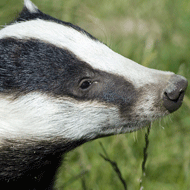
David Drew MP accuses government of ignoring scientific evidence
The Labour party has written to Defra asking for clarification on why the government has decided to significantly expand the badger cull.
In an open letter, shadow Defra minister David Drew said that he was surprised that the government had increased the cull to a further 11 areas. ‘You appear to have done so without any consultation of statement providing the rationale for such a dramatic move,’ he said.
In the letter, Mr Drew - Labour MP for Stroud - accuses Defra of ignoring ‘an evidence-based, scientific approach’, adding that it had ‘fallen back upon the tried, tested and failed policy of culling’. He calls on Mr Eustice to provide clarity on what new scientific evidence there is that the cull has been a success.
He writes: ‘The only academic study I can find is the paper by Brunt et al in the journal Ecology and Evolution. Their general conclusion is that it is far too early to be able to derive any meaningful data let alone evidence from the first two years of study.’
Mr Drew also questions what happens to badger carcasses that are collected after being dispatched. ‘Why has no attempt been been made to investigate what percentage of those animals were carrying bovine TB?’ He said. ‘Surely if only cattle carcasses are studied that is one one side of the equation’.
He asks Defra what other reservoirs of bovine TB in the wildlife population are being studied for the incidence of the disease. Furthermore, as cattle to cattle transmission of the disease remains the prime cause, he questions what plans are in place to deal with this aspect of the problem.
Defra announced last week that it would be granting 11 additional licences for badger control to parts of Devon, Wiltshire, Somerset, Dorset and Cheshire. The update followed a consultation on licensed badger control to which the BVA, BVZS and the Association of Government Veterinarians submitted a formal, joint response.



 The BSAVA has opened submissions for the BSAVA Clinical Research Abstracts 2026.
The BSAVA has opened submissions for the BSAVA Clinical Research Abstracts 2026.